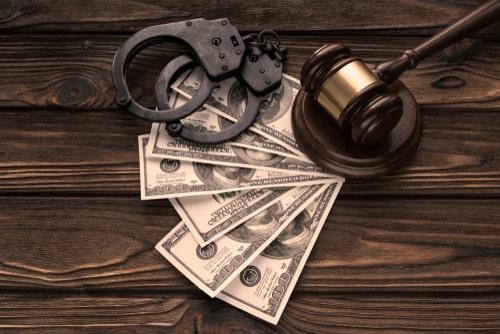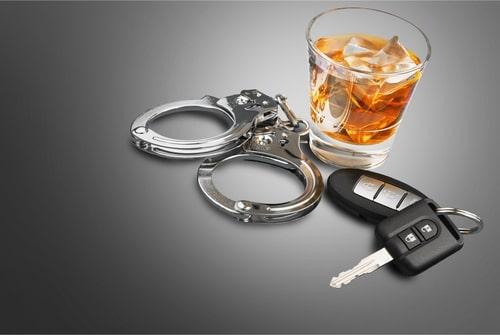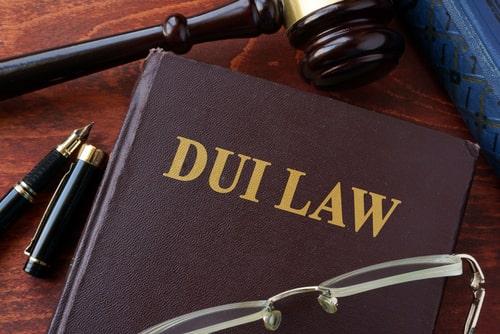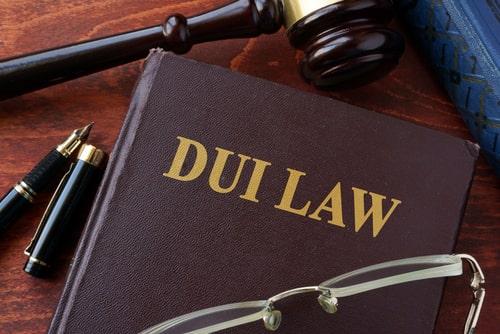Recent Blog Posts
What Evidence Does a Prosecutor Need to Prove That I Stole a Car?
 When facing stolen car charges in Illinois, it is important to understand what evidence the prosecution needs to prove to convict you. The prosecution must prove beyond a reasonable doubt that you knowingly possessed a stolen vehicle. This means that they must prove that you knew the vehicle was stolen at the time you had it.
When facing stolen car charges in Illinois, it is important to understand what evidence the prosecution needs to prove to convict you. The prosecution must prove beyond a reasonable doubt that you knowingly possessed a stolen vehicle. This means that they must prove that you knew the vehicle was stolen at the time you had it.
The evidence that the prosecution may use to prove stolen car charges can vary depending on the specific circumstances of the case. Common types of evidence that a prosecutor may use as proof include eyewitness testimony and physical evidence.
It is important to note that even if the prosecution has evidence that you possessed a stolen vehicle, they still must prove that you knew the vehicle was stolen. This can be difficult for the prosecution to do, especially if you have a credible explanation for how you came to possess the vehicle. To help develop a strategy to better explain the credibility of your reasons, consult an attorney.
What is a Red Light Camera Ticket and How Can I Fight It?
 A red light ticket is a citation issued to a driver who fails to stop at a red light. In Illinois, red light tickets are issued by automated cameras that are mounted at intersections. The cameras take a picture of the vehicle as it enters the intersection after the light has turned red.
A red light ticket is a citation issued to a driver who fails to stop at a red light. In Illinois, red light tickets are issued by automated cameras that are mounted at intersections. The cameras take a picture of the vehicle as it enters the intersection after the light has turned red.
A red light or stop sign violation may be considered reckless driving, depending on the circumstances. Reckless homicide charges are possible for violations that result in the death of another person.
You should immediately contact an attorney if you have been charged with a reckless driving offense in Illinois. An attorney with experience and understanding can help you fight the charges being lobbied against you and protect your rights.
I Am Being Prosecuted for Retail Theft in Illinois. What Do I Do?
 Prosecution for retail theft in Illinois is no laughing matter. You must understand your rights and options. You have the right to an attorney, and it is strongly advised that you exercise this right. An experienced criminal defense lawyer can help you understand the charges against you, build a strong defense, and protect your interests in court.
Prosecution for retail theft in Illinois is no laughing matter. You must understand your rights and options. You have the right to an attorney, and it is strongly advised that you exercise this right. An experienced criminal defense lawyer can help you understand the charges against you, build a strong defense, and protect your interests in court.
What are the Penalties for Retail Theft in Illinois?
The penalties for retail theft vary depending on the value of the property stolen. If the value of the property is less than $300, it is a Class A misdemeanor, which is punishable by up to one year in jail and a fine of up to $2,500. This can be bumped up to a Class 4 felony if the individual:
Five Sneaky Financial Moves That Can Land You in Hot Water
 Illinois takes a firm stance against fraud, leaving no room for deceptive practices. From businesses to individuals, the state leaves no stone unturned when it comes to safeguarding the sanctity of transactions. In the intricate world of finance, some actions might seem inconspicuous, but forgery and deceptive practices pack a punch when it comes to legal repercussions that go beyond monetary fines and jail time. Imagine being turned down for loans due to a criminal record or facing roadblocks while trying to secure a rental. In this blog, we will take a closer look at financial moves that can lead to trouble.
Illinois takes a firm stance against fraud, leaving no room for deceptive practices. From businesses to individuals, the state leaves no stone unturned when it comes to safeguarding the sanctity of transactions. In the intricate world of finance, some actions might seem inconspicuous, but forgery and deceptive practices pack a punch when it comes to legal repercussions that go beyond monetary fines and jail time. Imagine being turned down for loans due to a criminal record or facing roadblocks while trying to secure a rental. In this blog, we will take a closer look at financial moves that can lead to trouble.
Keep Your Finances on the Right Track
Whether it is altering information or misrepresenting the facts, these moves are considered deceptive practices and they are against the law in Illinois. Here are five forms of trickery that come with serious legal consequences:
Navigating Your First DUI
 Facing a drunk driving charge can be a stressful and overwhelming experience, especially if this is your first encounter with the legal system. In Illinois, 86 percent of all drivers arrested for DUI are first-time offenders. You may be scared and not realize that you have options. Trying to understand how to defend yourself can be tricky so we recommend reaching out to The Law Office of Brian J. Mirandola to have an experienced criminal defense attorney help you during this difficult time.
Facing a drunk driving charge can be a stressful and overwhelming experience, especially if this is your first encounter with the legal system. In Illinois, 86 percent of all drivers arrested for DUI are first-time offenders. You may be scared and not realize that you have options. Trying to understand how to defend yourself can be tricky so we recommend reaching out to The Law Office of Brian J. Mirandola to have an experienced criminal defense attorney help you during this difficult time.
First Offense
Under Illinois law, a first DUI offense occurs when someone has not had his or her license suspended within the past five years, has a DUI conviction or assigned court supervision for DUI, or has a DUI conviction outside of Illinois. These are some common scenarios for first-time offenders and the impact on driving privileges:
- Chances are you were given a chemical test when you were pulled over by an officer. If you have been told that you failed the test and this is your first offense, your driving privileges will be suspended for six months.
When Is a BAIID Required in a DUI Conviction
 Navigating the aftermath of a DUI charge can be a complex and challenging process, especially when it comes to reclaiming the freedom to drive. That is when a Breath Alcohol Ignition Interlock Device (BAIID) becomes an essential aspect of the journey. In Illinois, approximately 12,000 individuals drive with a BAIID that has been installed in their vehicle. This device, though imposing at first glance, plays a pivotal role in not only reinstating driving privileges but also in promoting responsible behavior behind the wheel.
Navigating the aftermath of a DUI charge can be a complex and challenging process, especially when it comes to reclaiming the freedom to drive. That is when a Breath Alcohol Ignition Interlock Device (BAIID) becomes an essential aspect of the journey. In Illinois, approximately 12,000 individuals drive with a BAIID that has been installed in their vehicle. This device, though imposing at first glance, plays a pivotal role in not only reinstating driving privileges but also in promoting responsible behavior behind the wheel.
Advanced Technology
In most states, including Illinois, a BAIID is required for individuals who have been convicted of driving under the influence offenses. A BAIID uses advanced technology to detect the blood-alcohol content (BAC) of the driver before the vehicle starts. The device is installed in the ignition of a vehicle and prevents the driver from starting the car if their breath registers an elevated BAC of .025 or more.
Zero Tolerance for Underage Drinking and Driving in Illinois
 As summer heats up, young people often find themselves enjoying newfound freedom, and that can include alcohol consumption and driving. Research shows that Illinois may have a significant underage drinking problem with nearly four percent of people under the age of 21 dying from excessive alcohol use. The zero-tolerance law has not only served as a deterrent for young drivers but it has also contributed significantly to the overall reduction of alcohol-related accidents and deaths involving minors.
As summer heats up, young people often find themselves enjoying newfound freedom, and that can include alcohol consumption and driving. Research shows that Illinois may have a significant underage drinking problem with nearly four percent of people under the age of 21 dying from excessive alcohol use. The zero-tolerance law has not only served as a deterrent for young drivers but it has also contributed significantly to the overall reduction of alcohol-related accidents and deaths involving minors.
Zero-Tolerance Law
Illinois, like many states across the United States, has adopted a zero-tolerance policy for drivers under the age of 21 who are caught with any amount of alcohol in their system while operating a vehicle. That means that even a minuscule blood alcohol concentration (BAC) can lead to serious legal consequences, regardless of whether it is evident or not that the underage driver is impaired.
Can I Still Drive if My License is Suspended Due to a DUI?
 Once your driver’s license has been suspended or revoked, it is against the law to drive. At The Law Office of Brian J. Mirandola we understand that losing the ability to drive can make it very difficult to get around town and meet your obligations. We will work to help you regain your driving privileges even after a DUI with a restricted driving permit or RDP.
Once your driver’s license has been suspended or revoked, it is against the law to drive. At The Law Office of Brian J. Mirandola we understand that losing the ability to drive can make it very difficult to get around town and meet your obligations. We will work to help you regain your driving privileges even after a DUI with a restricted driving permit or RDP.
Restricted Driving
Driving on a suspended or revoked license is considered a criminal offense and you will be expected to pay fines and jail time. However, in Illinois, if your driver’s license has been suspended or revoked and you are a repeat offender you can apply for an RDP. The permit will allow you to drive to and from work, school, or a doctor’s appointment. Under the law, the RDP enables you to drive 12 hours a day, six days a week, for a limited number of miles. Here are some things to keep in mind depending on the number of DUI offenses you have:
Am I Better Off Refusing a DUI Test?
 So you got pulled over by an officer who alleged you were driving under the influence of alcohol. You may have figured that if you refused to take the chemical test, there would be no proof of alcohol in your system. Now you are facing severe consequences including the suspension of your driver’s license. Can you possibly present a DUI defense after refusing a test?
So you got pulled over by an officer who alleged you were driving under the influence of alcohol. You may have figured that if you refused to take the chemical test, there would be no proof of alcohol in your system. Now you are facing severe consequences including the suspension of your driver’s license. Can you possibly present a DUI defense after refusing a test?
Implied Consent Law in Illinois
In Illinois, the state's implied consent law requires drivers to submit to chemical testing which includes breath, blood, or urine tests. Refusing to take a chemical test can have legal consequences, including having your driver's license suspended. The officer however must have a reasonable suspicion that someone is drunk before requesting a breath test, such as visible signs of intoxication.
Potential Penalties
Refusing a test to measure your blood alcohol content is not a crime but it is considered an administrative offense. If you refuse the test and it is your first offense, your license will be suspended for one year and you will not be eligible for a Monitoring Device Driving Permit. If it is a second offense, your license will be suspended for three years. These penalties can be imposed even if you are ultimately found not guilty of DUI.
The Potential Consequence of Failing to Report a CDL Violation
 Commercial truck drivers are the backbone of America and they are held to stricter rules and regulations compared to other motorists on the roads. Dedicated truckers drive billions of miles each year, sometimes in and out of different states, to deliver everything imaginable. They spend countless hours behind the wheel and therefore it is only natural to wind up with a commercial driver’s license violation. You may think that not telling anyone about a commercial license violation will get you home scot-free. But there are serious legal consequences for failing to report commercial license violations in Illinois.
Commercial truck drivers are the backbone of America and they are held to stricter rules and regulations compared to other motorists on the roads. Dedicated truckers drive billions of miles each year, sometimes in and out of different states, to deliver everything imaginable. They spend countless hours behind the wheel and therefore it is only natural to wind up with a commercial driver’s license violation. You may think that not telling anyone about a commercial license violation will get you home scot-free. But there are serious legal consequences for failing to report commercial license violations in Illinois.
Reporting Requirements
If you are a truck driver with a commercial driver’s license or CDL and you are pulled over and slapped with a traffic ticket outside of Illinois, you must report the infraction to the Secretary of State. It is understandable to think that if you tell your employer about this violation, you are putting your job in jeopardy. But it is quite the contrary. You must notify your employer within 30 days or risk losing your job.







